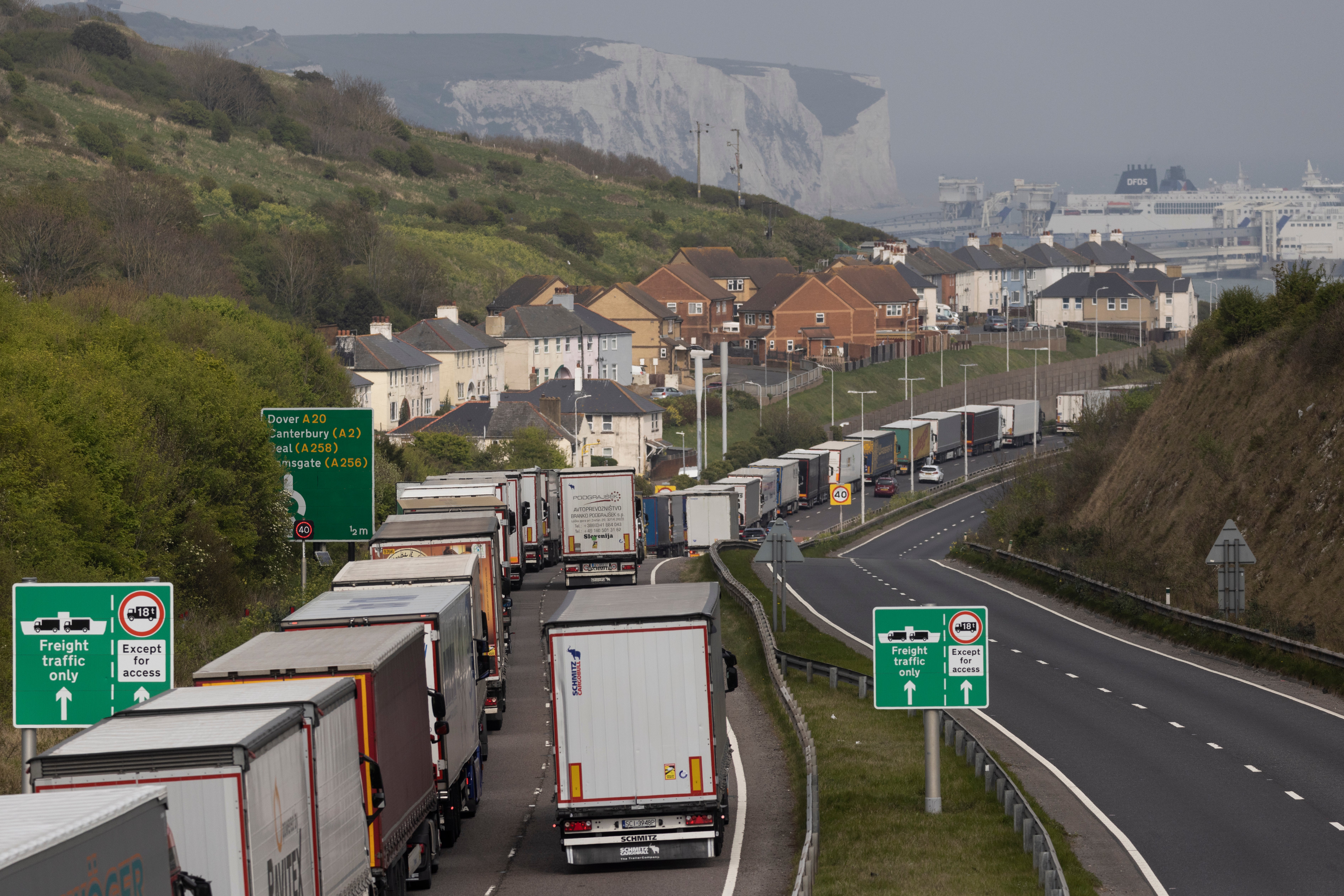Brexit snarling again amid more grim economic news
The grim toll Brexit is taking on the economy is getting increasingly hard to ignore, writes James Moore


Brexit waxes and wanes like the moon – but while our lunar satellite cyclically disappears from view, the effects of Britain’s exit from the European Union are visible across the board.
John Springford at the Centre for European Reform, who has been tracking its increasingly dire impact on the UK economy, released his latest update this week.
Based on the performance of similar countries before and after the event, he calculated that the UK’s economy was 5.5 per cent smaller in the second quarter of the year than it otherwise would have been. In real money, economic output was £33bn lower and tax revenues were £12bn lower.
For the year to the end of June 2022, he put the tax hit at roughly £40bn. That number is, obviously, made all the more significant by the bitter pay disputes involving public sector workers who have been told there’s no more money in the kitty.
If that was the jab, the upper cut to Brexiteer chins came from the British Chambers of Commerce (BCC). The business group could hardly have put it more bluntly when it declared that Boris Johnson’s Brexit trade deal was “not delivering”.
Having surveyed 1,168 businesses, 92 per cent of them small and medium-sized enterprises (SMEs), it found that more than three-quarters (77 per cent) of those for which the Brexit deal is applicable said it was not helping them either increase sales or grow their businesses.
More than half (56 per cent) said they faced difficulties adapting to the new rules for trading goods. Almost half (45 per cent) said they were struggling to adapt to the rules for trading services. A similar number (44 per cent) had difficulties obtaining visas for staff.
This will come as no surprise to anyone who has been paying attention. The queues at customs, the stifling red tape... they have shifted the Alps into the English Channel and forced British businesses to scale the north face of the Eiger to trade with Europe. All this before one gets to the under-the-radar damage caused by Brexit, which is particularly problematic for SMEs.
I vividly remember talking to Nathaniel Cramp, the founder of Sonic Cathedral records, whom I visited earlier this year to get an update on his buisness after Brexit. I’d written a feature on his label and the potential impact of the no-deal Brexit Johnson was threatening after taking power. As such, I was interested to see how things were going. Happily, the label is still thriving but Cramp told me his trade with Europe has fallen off a cliff.
He still gets orders from customers on the continent. But a substantial proportion of them are apt to vanish into a Brexit-created void. Presumably, his parcels are piling up in an anonymous depot somewhere along with hundreds of thousands of others.
The UK government claims that it “does not recognise” Springford’s analysis. That is at best a disingenuous position to take. Its own Office for Budget Responsibility has described Brexit as an “economic shock”, and there is almost no one outside the ranks of government and the corps of true believers who would dispute that.
However, economists’ numbers are inevitably the subject of debate. The real-world effects highlighted by the BCC are harder to dismiss. To do so would be to deny the reality that an increasingly large proportion of the public is starting to recognise.
Yet still the government insists on trying. Instead of trying to fix problems, it prefers gaslighting. The concerns of the ideologues on its back benches trump the concerns of businesses that have to shell out for ropes, rucksacks and crampons before they can get started on selling their goods and services.
The BCC believes that there are solutions to be found and has sent its report containing 24 recommendations to the government. Among its top asks: “Establish a supplementary deal, like Norway’s, that exempts smaller firms from the requirement to have a fiscal representative for VAT in the EU.”
This would make sense, but the BCC’s proposals would have to be negotiated and negotiations inevitably mean compromise. The mere mention of “compromise”, let alone “Norway”, is all but guaranteed to provoke incoherent outrage among Tory hardliners, even if the BCC isn’t advocating anything like the latter’s much closer relationship with the EU.
Needless to say, I write this on the day of another downward revision to GDP, which contracted by 0.3 per cent in the three months to September against an initial estimate from the Office for National Statistics of 0.2 per cent. PS: Business investment fell by 2.5 per cent during the three months in question.
The Treasury made no mention of Brexit in its response, pointing to Putin’s illegal war (undoubtedly a contributor but far from the only one), promising to get inflation down and twittering about “record investment in infrastructure and new industries”.
The public would clearly like Brexit to be “done” but there is little chance it won’t cast a lunar glow over our economy and politics for the forseeable future.






Join our commenting forum
Join thought-provoking conversations, follow other Independent readers and see their replies
Comments